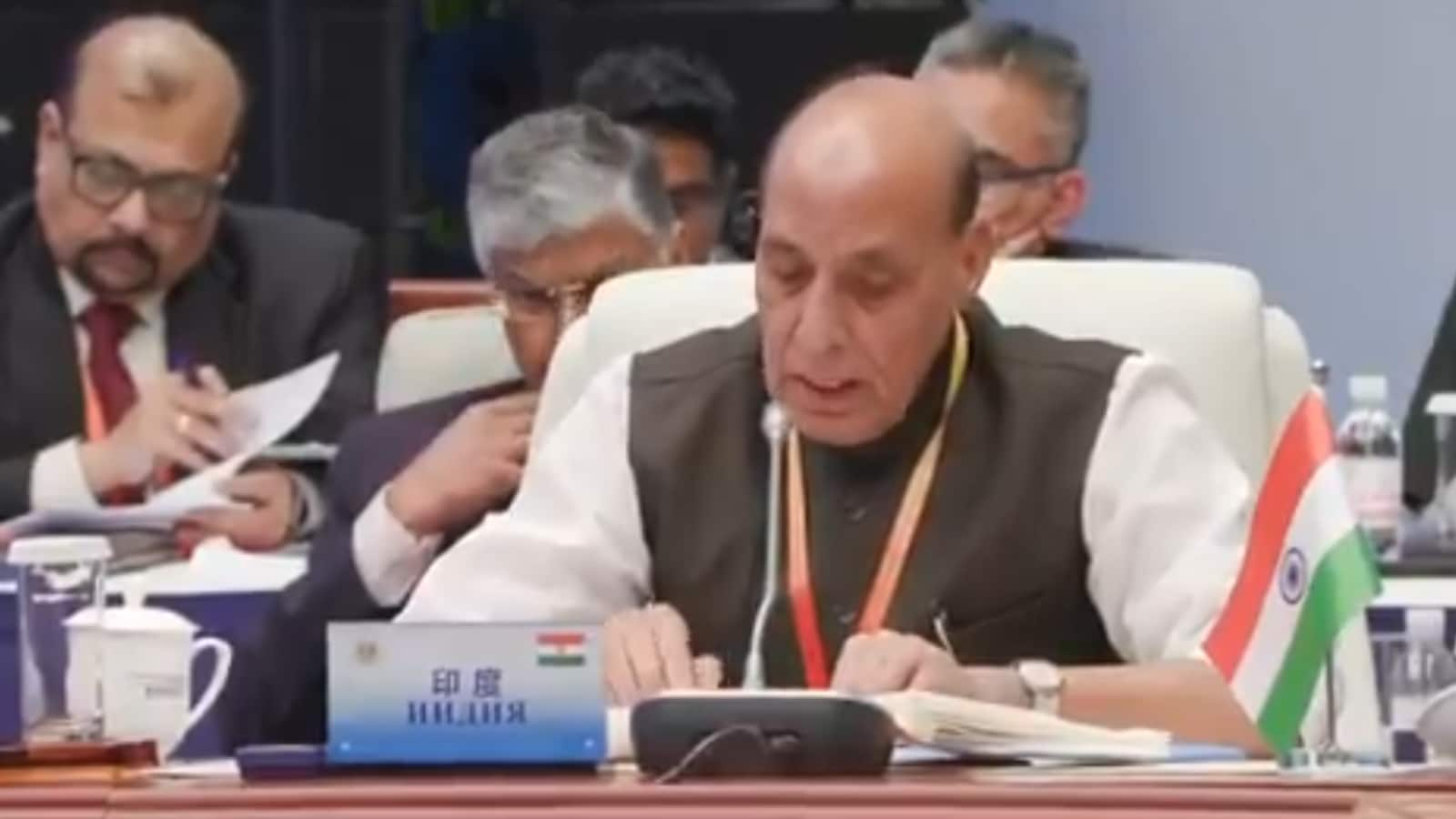India’s Raksha Mantri Rajnath Singh travelled to China’s Qingdao for the Shanghai Cooperation Organisation (SCO) defence ministers’ summit this week. And diplomatic pleasantries were left at the door.
Prime Minister Narendra Modi did not send the Raksha Mantri into the “dragon’s” den to seek consensus, but to detonate it. After it was found that China and Pakistan were trying to dilute the joint statement’s language on the grave issue of cross-border terrorism, Rajnath Singh simply refused to sign the document. This was India, on Chinese soil, finally tearing up the bankrupt script that has governed such hollow gatherings for far too long.
For years, the SCO has been a theatre of the absurd. A regional organisation where the chief sponsor of terror, Pakistan, sits as a member, shielded by its all-weather benefactor, China. India had dutifully played its part all these years, mouthing platitudes about cooperation while sitting across from the very state that weaponises jihad against Indians. This year’s summit, however, has shown that the era of polite fiction is now officially over.
The Qingdao meeting will be remembered as the moment India stopped playing along.
Rajnath Singh’s address was a charge sheet delivered at point-blank range. When he spoke of nations using “cross-border terrorism as an instrument of policy” and providing “shelter to terrorists,” the silence in the room was thick with unspoken acknowledgements. He was not speaking in hypotheticals. The Raksha Mantri invoked the grisly, targeted execution of 26 civilians in the Pahalgam terror attack by The Resistance Front, a known proxy of the UN-designated terror outfit Lashkar-e-Taiba.
Then came the unapologetic declaration. By referencing ‘Operation Sindoor’, he announced India’s new security doctrine – on Chinese soil, no less. The message, delivered just feet away from his Chinese and Pakistani counterparts, was brutally clear: The “epicentres of terrorism” are no longer sacrosanct, and will be pulverised by India at a time and place of its choosing. India will no longer let borders limit its right to respond. India reserves the right to defend itself, and will not hesitate to act. This was India explicitly stating that its patience for the proxy war has run out, and the cost of sponsoring terror has just gone up exponentially.
The true power of the Modi-Singh gambit lay in the action that followed. When presented with a draft joint communique, cynically engineered by China to dilute the language on terrorism and provide cover for Pakistan, India refused to sign. What was even more brazen was China and Pakistan’s attempt to brush over the Pahalgam terror attack and instead include Balochistan in the joint statement. This was an attempt to falsely implicate India for all the chaos that Pakistan’s illegal occupation of Balochistan has ended up causing. The old, cautious India might have negotiated, settling for some watered-down, mealy-mouthed compromise for the sake of a group photo and a headline about “constructive engagement.”
The new India, however, chose to burn the photo op to the ground.
By withholding its signature, India single-handedly torpedoed the statement, forcing an outcome of no “joint consensus” at all. This denied China the diplomatic win of a unified statement. It denied Pakistan the legitimacy of being part of a collective stand against a threat it actively cultivates. Most importantly, it held a giant mirror up to the SCO itself, exposing the hypocrisy rotting at its core. The implosion of the joint statement starkly revealed the organisation’s fundamental fracture: India’s zero-tolerance for terror on one side, and the China-Pakistan ‘axis of convenience’ on the other. India’s message to the SCO is clear: what is a supposed “security and defence” bloc worth if it cannot even condemn the architects of terror within its own ranks?
Here are the three biggest takeaways from India’s plain speak at the SCO defence ministers’ summit:
First, India has unambiguously asserted its red lines. The price of admission for any serious security dialogue with India is now an unequivocal and actionable stance against state-sponsored terror. The conversation now starts from India’s position, not some vague middle ground.
Second, it has seized control of the narrative. The story out of Qingdao is not one of SCO unity or Chinese leadership. The story is about India’s principled defiance. New Delhi turned a position of potential isolation into a projection of solitary strength and moral clarity.
Finally, by exposing the fault lines within the SCO, India has diminished the bloc’s utility for Chinese propaganda. Beijing can no longer parade the SCO as a seamless Eurasian alternative to Western alliances. India has proven it is a member, but not a subordinate.
The Modi government has decided that the cost of false harmony is far too high. The silence left by the absence of a joint statement was more meaningful than any document filled with empty words. It was the sound of a new India, an India that will walk into the dragon’s den not to negotiate with the jackal, but to put it, and its powerful patron, on notice. This is the new normal.
Views expressed in the above piece are personal and solely those of the author. They do not necessarily reflect News18’s views.
